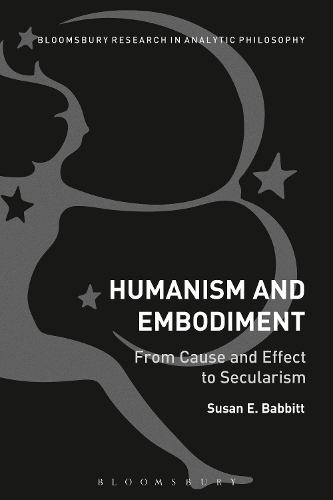
Humanism and Embodiment: From Cause and Effect to Secularism
(Paperback)
Available Formats
Publishing Details
Humanism and Embodiment: From Cause and Effect to Secularism
By (Author) Susan E. Babbitt
Bloomsbury Publishing PLC
Bloomsbury Academic
17th December 2015
United Kingdom
Classifications
Tertiary Education
Non Fiction
144
Physical Properties
Paperback
208
Width 156mm, Height 234mm
299g
Description
A live issue in anthropology and development studies, humanism is not typically addressed by analytic philosophers. Arguing for humanism as a view about truths, Humanism and Embodiment insists that disembodied reason, not religion, should be the target of secularists promoting freedom of enquiry and human community. Susan Babbitts original study presents humanism as a meta-ethical view, paralleling naturalistic realism in recent analytic epistemology and philosophy of science. Considering the nature of knowledge, particularly the radical contingency of knowledge claims upon causal mechanisms, religious thinkers like Thomas Merton and Ivan Illich offer more scientific conceptions of practical deliberation than are offered by some non-religious ethicists. Drawing on philosophical sources such as Marxism, Buddhism and Christianity, this original study considers implications of an embodied conception of reason, revealing philosophical, practical and political implications.
Reviews
Susan Babbitt takes a fresh and enlightened view at the inescapable fact that we are bodies that think and not minds in bodies. She ventures beyond too-familiar philosophical routines to give us new perspectives on embodiment, humanism, religion, and notably on quietness. A most stimulating, even inspiring book. -- C. G. Prado, FRSC, Emeritus Professor of Philosophy, Queens University, Canada
Susan Babbitt, always challenging and original, is never more so than in her current exploration of humanism and embodiment in which she provocatively links Buddhism, Marxism, and Christianity with contemporary scientific realism. She argues cogently that the enemy of the humanism that is presupposed in liberation struggles is not religion but disembodied liberalism. This wide-ranging work will transform the debate on the limits and potential of self-knowledge needed for human liberation. -- Richmond Campbell, George Munro Professor of Philosophy Emeritus, Dalhousie University, Canada author of Illusions of Paradox: A Feminist Epistemology Naturalized
Author Bio
Susan E. Babbitt is Associate Professor in the Department of Philosophy at Queen's University, Kingston, Canada.
